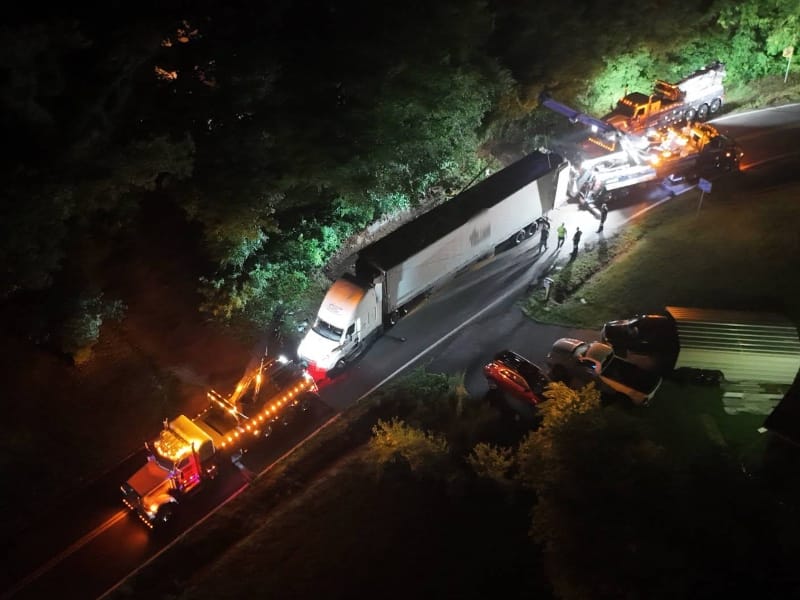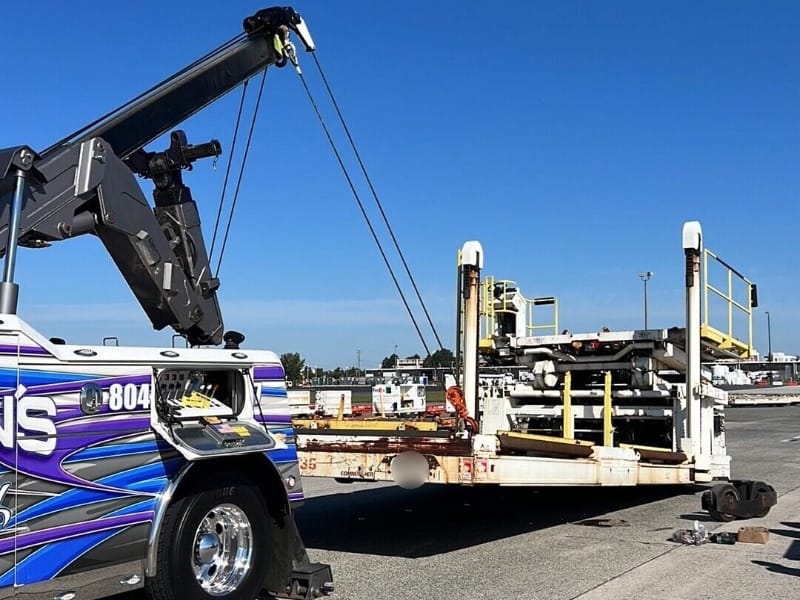Why It Matters More Than You Think
Towing too much weight can damage your vehicle and put everyone on the road at risk. We’ve seen it firsthand: trailers swaying out of control, broken hitches, overheated engines. That’s why calculating towing capacity needs to be exact. Knowing your limits helps prevent breakdowns and keeps everyone safer out there. In this guide, we’re breaking down the basics, because when it comes to I-295 heavy towing, numbers matter.

Where Most People Go Wrong
Towing takes more than just hooking up and heading out. There are weights, ratings, and limits that need to be understood. Many drivers confuse gross weight with curb weight, or assume a vehicle can tow whatever the hitch can hold. That type of thinking can lead to serious problems.
When we respond to I-295 heavy towing calls, some common issues come from overloading. Drivers might push limits without realizing how quickly extra cargo adds up. Or they assume that because their buddy’s truck can haul it, theirs can too. The truth is that every truck has a different capacity, and guessing isn’t good enough.
The Numbers You Need to Know
Let’s break down the key terms we use when calculating whether a load is safe to haul:
- GVWR (Gross Vehicle Weight Rating): The max your vehicle can weigh loaded. This includes passengers, cargo, and fuel.
- GCWR (Gross Combined Weight Rating): The total your vehicle and trailer can weigh combined.
- GAWR (Gross Axle Weight Rating): The most weight each axle can safely support.
- Curb Weight: The weight of your vehicle without passengers or cargo.
- Tongue Weight: The force the trailer puts on the hitch, usually 10–15% of the trailer’s weight.
These numbers are not suggestions. They are limits that should be respected every time.
How We Break It Down in the Field
When we’re out on a call for I-295 heavy towing, we sometimes need to figure out if a load needs redistribution before we even move it. It’s not just about raw weight. Balance matters. Axles matter. So do road conditions and slope.
Here’s how we handle it:
- We check the tow vehicle’s GCWR and compare it to the trailer’s loaded weight.
- We inspect how cargo is distributed. Too much on the rear axle causes sway. Too much up front overloads the hitch.
- We assess the tongue weight to make sure it matches the hitch rating.
Our rigs are built for serious weight. Still, we calculate each load before a heavy-duty recovery or equipment transport. Being prepared keeps us and our customers safe.
What Happens When You Overload
When a trailer is too heavy for the tow vehicle, the consequences stack up fast. Here’s what we’ve seen go wrong:
- Brake failure from too much strain
- Transmission overheating from overworking the drivetrain
- Trailer sway leading to complete loss of control
- Blowouts due to pushing tires past their limit
Many I-295 heavy towing calls we answer started with one simple mistake: assuming the setup could handle more weight than it actually could.
Quick Checklist Before You Hook Up
Here’s a bullet-point rundown we recommend every time you’re about to tow:
- Know your tow vehicle’s GCWR
- Weigh the loaded trailer
- Check tongue weight and hitch rating
- Confirm the trailer’s brakes are functional
- Distribute weight evenly across axles
- Inspect tires on both the truck and trailer
If you’re unsure, do not guess. A lot of damage can happen before you even hit highway speed.

Robinson’s Towing: Reliable I-295 Heavy Towing When You Need It
We know I-295. We’ve pulled overloaded campers off exit ramps, recovered trailers jackknifed near the beltway, and towed heavy equipment stuck mid-haul. When we handle I-295 heavy towing, we do more than hook and go. We assess, stabilize, and move things the right way.
We bring the tools and experience to solve any towing capacity mistake. If your haul went off track or you want help from a team that treats towing as a science, call us.
I-295 heavy towing needs calculation and care. That’s how we do it, every time.

